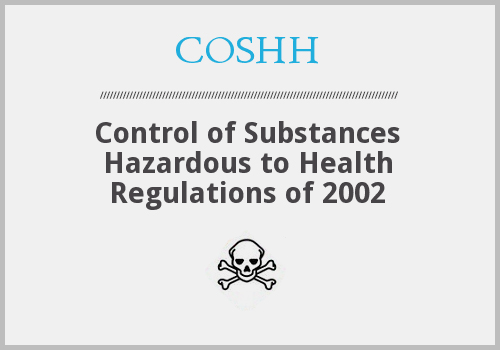Legionella Legislation
Legal Health & Safety Duties
Employers, Landlords and Commercial Tenants and have legal health and safety duties under the Health & Safety at Work etc. Act 1974 and the Control of Substances Hazardous to Health Regulations 2002 to take suitable precautions to prevent or control risk of exposure to legionella. This is not a recent change to UK legislation. Ever since the introduction of the Control of Substances Hazardous to Health Regulations (COSHH) in 1989, there has been a requirement for the Responsible Person (be they the Owner or landlord) of both domestic and business premises to assess the risks from exposure to Legionella to their occupants (be the tenants, employees or visitors).
Health and Safety at Work Act 1974
Section 3(2) of the Health and Safety at Work Act 1974 (HSWA) makes provision for relevant health and safety legislation to apply to landlords to ensure a duty of care is shown to their tenants’ with regard to their health and safety. The general duties require under section 3(2) that “It shall be the duty of every self-employed person to conduct his undertaking in such a way as to ensure, so far as is reasonably practicable, that he and other persons (not being his employees) who may be affected thereby are not thereby exposed to risks to their health or safety.” Landlords, under Section 53 of HSWA are regarded as being self-employed and tenants fall into the class of “other persons (not being his employees)”. If you rent out a property, you have legal responsibilities to ensure you conduct your undertaking in such a way that your tenant(s) are not exposed to health and safety risks.

Control The Risk
The Control of Substances Hazardous to Health Regulations 2002 (COSHH) provides a framework of actions to control the risk from a range of hazardous substances, including biological agents (eg Legionella) – to identify and assess the risk, and implement any necessary measures to control any risk.
Approved Code of Practice
The Approved Code of Practice (ACOP “Legionnaires’ Disease – The Control of Legionella Bacteria in Water Systems” L8 (Fourth Edition) published by HSE gives advice on the requirements of the HSW Act and COSHH regulations. The ACOP was revised and republished in November 2013 and retained the guidance on the requirements of HSWA and COSHH for employers AND those with responsibilities for the control of premises including landlords (L8 ACOP, paragraphs 1 and 2). It applies to the control of Legionella bacteria in any undertaking involving a work activity AND applies to premises controlled in connection with a trade, business or other undertaking where water is used or stored and there is a reasonably foreseeable risk of exposure to Legionella bacteria (L8 ACOP, paragraph 22). Although primarily written to cover industrial and commercial premises, it has since 2000 applied to domestic properties as the previous 300 L storage capacity exclusion was removed.
The practical guidance on the assessment and control of the risks is now covered in “Legionnaires’ Disease – Part 2: The Control of Legionella Bacteria in Water Systems” (HSG 274).
HSE have produced “A brief guide for duty holders” (INDG 458) which describes the disease; identifies the risks; outlines the duties on landlords; outlines the risk assessment and the steps to manage and control the risk.
Refer to our Risk Assessment page for how Legionella Aberdeen applies these requirements.
Repairing Standard
The Repairing Standard which first came into force in Sep 2007 covers the legal and contractual obligations of private landlords to ensure their property or properties meet the minimum physical standard of repair. The recent update enforceable since Mar 2024, include new measures for individual property elements, such as kitchens and heating water systems, as well as the common areas of buildings, like the close and stairs.
The Repairing Standard in Annex D1 specifies that water systems must be assessed for legionella risk, and private landlords must ensure this is carried out before the property is first let. The risk assessment should then be regularly reviewed at intervals of no more than two years. If a review of the risk assessment indicates that there has been a change to the risk factors then a new risk assessment should be carried out. Depending on the system in the property, private landlords may be able to carry this assessment out themselves, or it might be necessary to employ a competent assessor to do it.
Additionally, landlords must also ensure that their property or properties have a satisfactory and adequate supply of drinking water. This supply must also comply with water quality regulations and have no more than 10 micrograms of lead per litre of water.
In addition is now a mandatory condition of obtaining a short-term let licence that the accommodation also meets the Repairing Standard.
All services are covered by Public Liability and Public Indemnity Insurance
Legionella Aberdeen supports local Letting Agents and individual Landlords based within Aberdeen and Aberdeenshire. So whether you have a portfolio or a single property please contact us on [email protected], or via mobile on:

